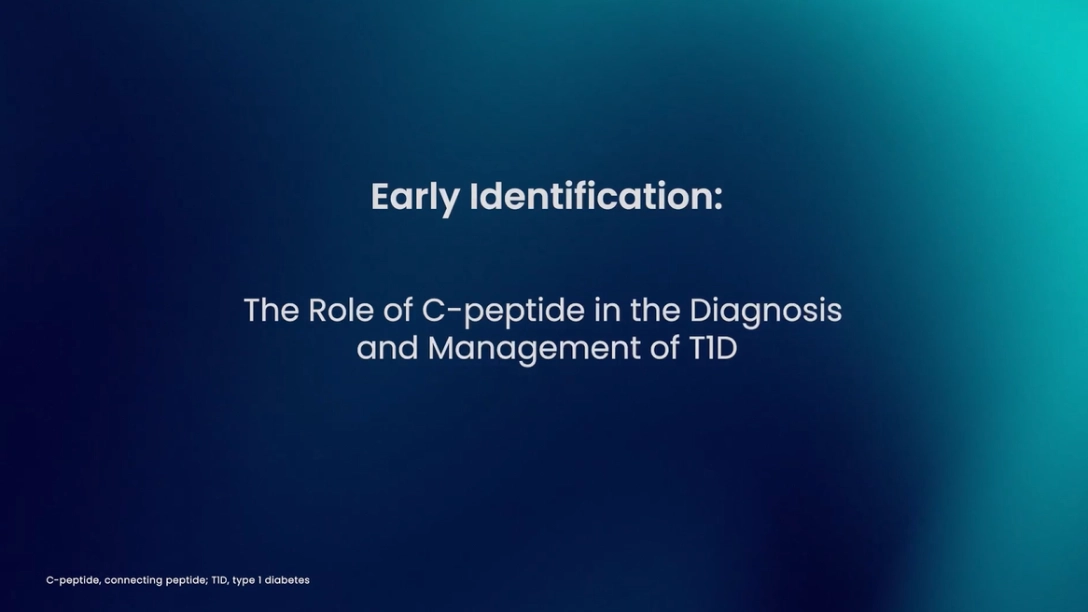- Resource
- BR1DGE
- Monitoring
- Early Detection
- Video
Early Identification: The Role of C-peptide in the Diagnosis and Management of T1D
Expert interview highlighting the importance and role of C-peptide during the diagnosis and management of type 1 diabetes
Learning Objectives
- To highlight the utility of C-peptide level analysis in the differentiation and diagnosis of clinical onset T1D
- Describe the role of C-peptide level analysis in T1D prognosis and disease management

Summary
If an individual has frank hyperglycemia and C-peptide levels that are low or undetectable, they have type 1 diabetes. Generally, if C-peptide is unmeasurable, I conclude, even without the presence of autoantibodies, that the person has type 1 diabetes. Where it becomes a little more difficult is in someone in the earliest stages of (clinical onset) type 1 diabetes, say within the first year, or in individuals over the age of 18, because C-peptide there is frequently detectable and may even be hard to discriminate from type 2 diabetes. However, if the levels are strikingly low, and in my mind the value of low is less than a stimulated level of 0.2 picomoles per ml, if it's less than that level, I generally assume they have type 1 diabetes.
C-peptide is what we've generally used to identify the progression of the disease, the severity and dependence on insulin, exogenous insulin therapy. Patients don't come to us complaining of problems with C-peptide. They come to us with problems in metabolic control, hypoglycemia, complications of type 1 diabetes. C-peptide here is, I think, a very good indirect measure of these problems in type 1 diabetes. For example, it was clear in the earliest days of the DCCT that retention of C-peptide was associated with reduced risk of microvascular complications, including eye disease and renal disease, and very importantly, a reduced risk of hypoglycemia, particularly severe hypoglycemia. This has been followed up in a number of other studies, including the EDIC study that followed individuals who were in the original diabetes control and complications trial, as well as data from the Scottish Registry that, again, supported the idea that retention of some C-peptide would reduce the risk of severe hypoglycemia. Hypoglycemia, particularly severe hypoglycemia, is the major limiting factor in our treatment of type 1 diabetes.
MAT-GLB-2501944-1.0 - 06/2025

.jpg/jcr:content/thumbnail-Medhub%20(1).jpg)

